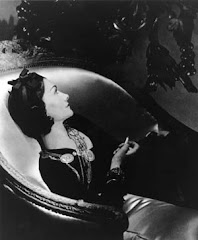
It is a perennial complaint of readers of literary fiction that they ‘don’t like’, or ‘can’t relate to’ the characters. It’s my impression that ‘liking the characters,’ or even ‘loving the characters’ forms one of the chief discussion topics in reading groups. However, it is not the role of the novelist to provide complete strangers with sets of imaginary friends. It is not up to me to second-guess the type of individual whose company someone I have never met, nor will ever meet, enjoys.
The creation of characters in fiction is one means, amongst several, of producing work of the literary imagination. At the baseline of fiction, the foundation that hold it up, is the telling of a story – the fulfilment of a human drive to tell and hear stories has its earliest manifestation in European culture in Homer. The story orders experience and makes sense of it; it contains within it wonder while feeding, at its most crude, our curiosity, but there really is nothing wrong with wanting to find out what happens ‘in the end’ even though in life the only endings are death.
An additional purpose of fiction is to point out that not only likeable individuals have stories, but also monsters. The murderer Rashkolnikov, in Dostoevsky’s Crime and Punishment, has a story. Another murderer, Macbeth, has one, too.
Wanting to ‘like’ characters, is to miss what the author is trying to tell us. That humanity comes in many manifestations, and even those who are evil are aspects of our selves. Indeed, one of the advantages of literature is that you can enjoy the company of individuals whom normally you would run a mile from, particularly their smells and grunts and bad breath. Every year or so I re-read Philip Roth’s Sabbath’s Theater to spend time with the appalling Mickey Sabbath, the repulsive puppeteer who turned down the opportunity to join Jim Henson and make muppets. He’s a lech, a hater, a thug, but at least he reminds you what it is to be alive. He is all passion, unspent.
And it is not only the demons who deserve to have their stories told. I am currently re-reading Anita Brookner, whose work I avidly devoured for several years after she won the Booker in 1984. An encrustation of scorn later grew up around her; her characters, it was said, were all the same – wet young woman, doormats, in an era which was producing a new fictional female type, the ‘feisty heroine.’ Brookner remained coolly admired, but fell from fashion. Re-reading three of her novels in the past couple of weeks, I have been astounded by the quality of her prose and the delicate, compassionate forensic quality of her mind. It is true that many of her characters are passive (both female and male) but their passivity conceals longings which they can neither express nor fulfil.
If you are looking for people to like, turn to the people in your book group. Literature is not escapism, it is a reckoning with reality. My friend, the poet George Szirtes, more or less exactly explains what literature is, in this series of posts about Doris Lessing’s The Good Terrorist, on his own site:
‘The novel's contract with reality is different from the poem's contract with reality, but reality itself - the out-thereness of it, the strange semi-documentary concreteness of it - is the same for both, exerting the same pressure. And this is true not just of novelists and poets but of humanity at large, or rather of that aspect of humanity that comprehends – however inarticulately - what the project of novels and poetry, indeed of all art is about, art being the place where experience, imagination and language flow into each other.’
Indeed. It is not life, it’s more.


3 comments:
Neither Raskolnikov nor Macbeth is a monster. Designating them thus really undermines the gist of your argument on behalf of fiction. They are human, all too human, which is why we are interested in them, are able to relate to them, and mourn for the miscarriage (or abortion, in Macbeth’s case) of their potential greatness. Monsters which figure frequently in fairy tales, are just a literary device, a construct meant to get the narrative going in the direction the author wants it to go.
Great authors never have monsters in their novels, but human beings, who were once babies, and who possess moral flaws we can identify, because they are all too recognizable. Jane Austen is a great example. Even Mrs. Norris is not a monster, as she would have been if written by a lesser writer.
Mordechai Richler, when asked about his most (in)famous character, Duddy Kravitz, once said it is impossible for an author to spend so much time with a character, however villainous, and not have some affection for him. It is impossible to create a believable character without having that basic recognition of affinity.
I think as readers, we often have an intuitive awareness of this authorial affection and we respond to it in our own way.
One only has to look at the list of bestsellers to see this played out. A chief criticism of The DaVinci Code, among many others, is that it reads like a hackneyed movie script...and shortly thereafter, it became one. I think the proliferation of film versions of novels has increased this trend - how many writers are actively seeking a movie deal as they pen their likable, goofy characters? And these are the characters people are demanding - even a movie such as About Schmidt, by the otherwise excellent Alexander Payne, reduced its main character to a series of strange, but forgivable, quirks.
But I believe that few, if any, book clubs truly contend with what, even in a general sense, could be called "literature." How many book clubs tackled The DaVinci Code over the last five years?
Thank you for verbalizing and venting about this phenomena.....this also applies to film. Honestly, when I read Amazon reviews, it amazes me that people can seriously equate the quality of the work w/ whether or not it had likeable characters and/or wasn't depressing. I can't understand the mental disconnect w/ these sorts of reviews.
Sadly, this trend has affected sales on the short end and entire cultures on the long term. It shows just how Disneyfied we've become as a culture(s).
Again, thank you for saying this. It needs to be said more often.
Post a Comment